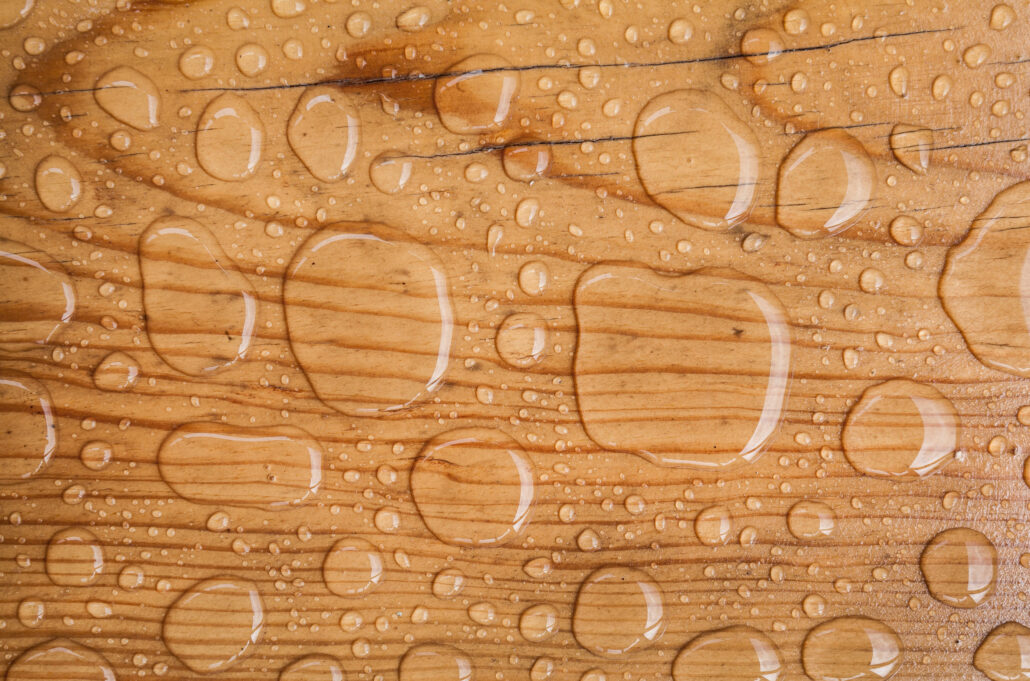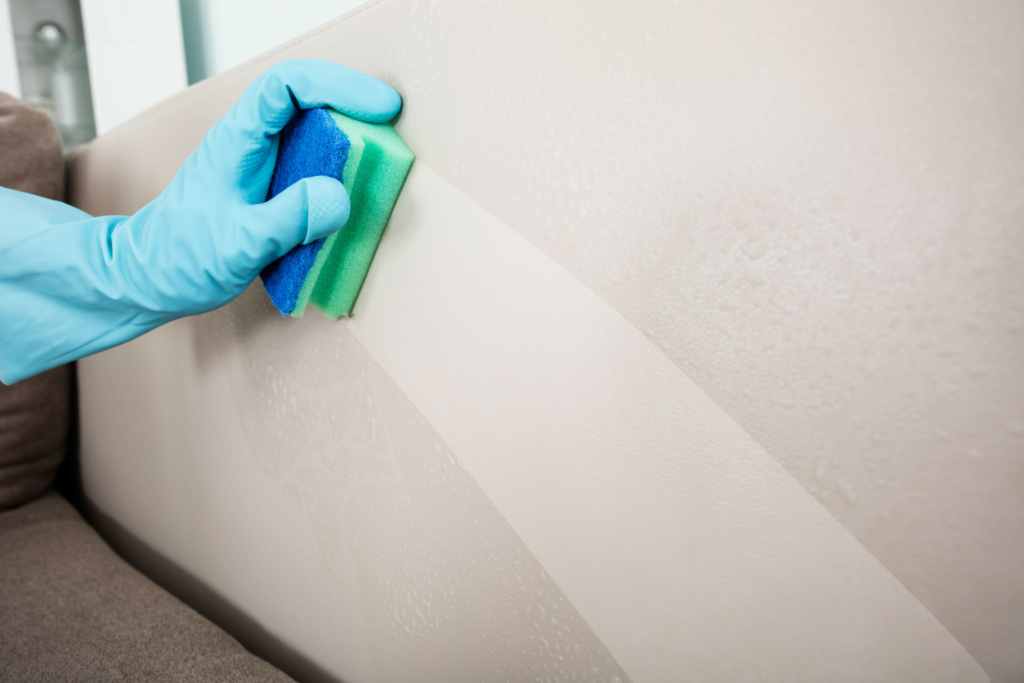It doesn’t matter how often or thoroughly you clean your home, your furniture will eventually need special attention. Before you tackle that sofa, ottoman, or dinner table, remember: the first rule of furniture cleaning is to use products that will enhance, not harm, the furniture’s material.
Why Go the Natural Way?
Whether you’re spot cleaning a stain or deep cleaning the whole piece, you’ll find plenty of commercial products on store shelves marketed for the job. Unfortunately they are usually laden with chemicals that are toxic to both the environment and human health. What’s more, these harsh cleaners can damage your furniture and upholstery, even causing tears in the fabric and permanent discoloration.
A cursory glance at your kitchen however, will reveal a slew of natural products that will do the trick without resorting to toxic chemicals. The trick is to repurpose natural products into an environmentally friendly and effective product recipe that will clean the furniture without damaging it in the process.

How to Clean Wood Furniture
The cumulative effect of water, time, and sunlight can take a toll on wood. It is not advisable to use chemical cleaners to restore wood because they can strip wood and leave marks or discoloration.
An effective, natural alternative for wood cleaners is vinegar or lemon mixed with olive oil. This combination should preferably be used with sealed wood only. You likely already have the ingredients available, and all you need is to prepare them in your home right now.
To prepare the mixture, you will need the following items:
- Spray bottle
- 1 cup of water
- 1 cup of white vinegar
- 1 tbsp of olive oil
Make sure to mix the ingredients well. Since oil isn’t soluble in water, the two tend to form separate layers. Give it a good shake every now and then to keep the two liquids well combined.
Now spray the mixture generously on the surface and use a clean, soft cloth to ensure maximum contact between the natural product and the wood.

Cleaning Leather Sofas, Chairs, and More
Few people worry about cleaning leather material on their furniture, other than wiping up the odd spill. We get it; there are bigger things to worry about. Until a stain lands smack dab in the middle of a couch cushion. Even a small spot can stick out like a sore thumb.
Once again, the most effective way to clean leather is by treating it with natural homemade products. Put away the commercial products and that throw pillow you’re using hide the stain and try a simple homemade solution of vinegar and olive oil.
Here’s how to prepare the mixture:
- Spray bottle
- ½ cup of olive oil
- ½ cup of vinegar
Simply mixing the ingredients in the spray bottle and be sure to shake it well.
Using a soft, clean towel, experiment with the oil and vinegar solution by starting out on a small, inconspicuous spot to test for possible discoloration. If all looks well, go ahead and spray the offending stains.
Follow this by using a slightly damp towel with a small about of soap to clean the spot. Remove any excess water from the towel before you clean — we really mean slightly damp. Leather is not water resistant, so you should not expect to clean it like other materials.
Wipe sideways and downwards in slow and gentle movements until all blights are removed.
Once the leather has been cleaned, toss aside your soapy towel and use a fresh, slightly damp towel to remove the residue instead.
Finally, use a dry towel to absorb any remaining water. You can recondition the material using specific oils for leather, although this is entirely optional. Olive oil is a good choice when it comes to reconditioning leather and preventing it from drying out.

Clean Fabric and Upholstery Without Causing Damage
For fabric and upholstery, gentle is almost always best because fibers can easily fray and discolor. Some combination of water, vinegar, mild soap, and/or rubbing alcohol will create an effective cleaner that most fabrics can withstand. Just remember to test the mixture in an inconspicuous place to see if it causes discoloration.
For this cleaning solution, a spray bottle that has the ability to create fine mist is ideal. This allows you to mist couch cushions and armchairs without getting them overly damp.
To prepare this mixture, start with a simple water and vinegar combo. Then add the other ingredients as called for.
- Spray bottle
- ½ cup of white vinegar
- ½ cup water
- 2-3 drops of mild soap (optional, first line of defense for stubborn stains)
- ½ cup of rubbing alcohol (optional, second line of defense for stubborn stains)
- 4 to 8 drops of essential oil (optional, purely for the pleasing scent!)
We say soap is the first line of defense for treating stains because it packs cleaning power but is still gentle on fabric. If that stubborn spot won’t budge, test a solution with rubbing alcohol added. We also recommend an essential oil because it will leave your furniture smelling great without the chemical fragrances typically found in cleaners.
Spray your mixture of choice onto your fabric or upholstery and let it sit there for about 2 minutes. Keep an eye on it and do not let the mixture dry out, otherwise you’ll have to start over.
Use a clean towel or sponge to scrub gently. It’s tempting to be aggressive when it comes to scrubbing, but that can do more harm than good. Slow and steady wins the race.
Once you’ve removed the undesirable spots, wipe or blot again with a clean, damp cloth and allow the upholstery to dry completely.

Don’t DIY Unless You’re Certain
Wary of trying to clean your favorite comfy chair or heirloom dining table yourself? Don’t attempt anything if you’re not confident. After all, what you’ll save by using the DIY method won’t make up for the loss of a great piece of furniture.
If you don’t have the time or ingredients to prepare your own natural products, why not have an expert do it for you? It is economical, effective, and helps you keep furniture free of stains, oils, wax, chewing gum, and other contaminants for years to come.
The experts at Lily’s cleaning are equipped to treat wood, leather, upholstery, and many other materials without spoiling them. Contact us today for more information on how we can help you.

